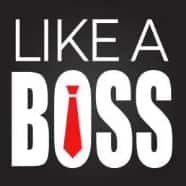Chandra Shekhar Ghosh, 59, Managing Director and Chief Executive Officer, Bandhan Bank Ltd, is a self-made man. Son of a small sweet-shop owner from Bengal, Ghosh’s journey began in Eastern India’s villages with an initial capital of mere Rs 2 lakh sourced from family and friends, to gradually build a microfinance institution and later grow it to a commercial bank in less than 15 years. In this chat with Moneycontrol, Ghosh opens up about his management style, his most admired leader and what motivates him at his work. Edited excerpts:
What time do you like to be at your desk?
My workday starts much before I get to my desk in office. It starts soon after I wake up early in the morning, after which I check my schedule and prepare for the day ahead. My day remains incomplete without my morning exercise and pooja. I then leave for office and try to be at my desk around 9:00 am.
Where is the best place to prepare for leadership: at business school or on the job?
While B-schools serve a purpose and have proven their success in preparing leaders, there is no teacher like life itself and no substitute for on-ground experience. Most management lessons comprise the learnings that experienced people have gained while working on ground. Many successful leaders in the world don’t have a B-school degree, but they have sharpened their entrepreneurial and leadership skills over time by pursuing their profession with passion and dedication.
Describe your management style.
I would say that my management style is inclusive and participative. Having the right people for the right job, and empowering them, is imperative. Whenever my colleagues approach me for a solution to a problem they are faced with, I encourage them to think of three possible solutions, keeping their view of the problem in mind. They are in the best position to assess the situation and I try to build on their thinking to arrive at the best course of action. Involving them in the decision-making process also gives employees a sense of ownership.
Are tough decisions best taken by one person or collectively?
It depends on the situation. As they say, two minds are better than one, and it always make sense to confer with your senior management team before coming to a conclusion. Diverse opinions and suggestions are important to take the best decision possible especially when it is a tough one. But whatever the decision be, its rationale should be explained to the larger team. If the context to a tough decision is set right, it helps employees accept the decision more willingly and this ensures effective implementation.
Do you want to be liked, feared or respected?
A leader should be liked. If he isn’t liked, none of his or her decisions will be accepted. If a leader’s suggestions lead to professional and personal well-being of his team members, it will help him earn their affection and respect. There should be no place for fear in a leader’s relationship with his team. I have seen myself in an organisation very early in my career where a senior person’s presence was a reason for everyone to feel scared. I remember how none of us used to be at our best in such a situation as we were all only thinking of how to avoid being cornered and chided. An atmosphere of fear is counterproductive to the interests of an organisation.
What does your support team look like?
My support team consists of the more than 40,000 employees of Bandhan Bank. I have a few direct reports for administrative ease, yet, I do not follow the hierarchy strictly. I am often seen speaking to even my two or three downs in corridors or at their workstations. A leader is only as good as his team and each and every individual – from the teller or the customer relationship officer at a branch to members of the core management team – has a unique role to play in an organisation’s journey. I would also like to think of my customers and well-wishers as a part of my support team, who give me valuable, unbiased feedback that helps us continuously improve.












